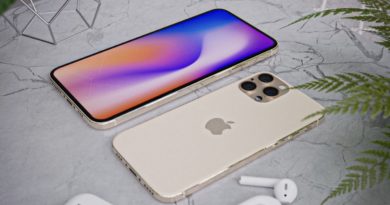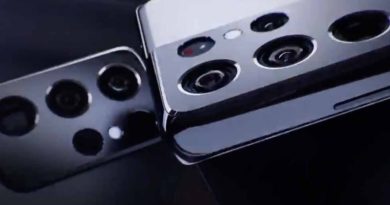Forget Samsung Galaxy Z Fold 3 — Samsung ‘multi-foldables’ just leaked
From the rumors so far, the Samsung Galaxy Z Fold 3, likely to debut late next year, will be an evolution of the dual-screen Galaxy Z Fold 2. But the future of Samsung’s foldable devices looks set to involve triple-display “multi-foldables.”
That’s because LetsGoDigital unearthed a patent hinting at the multi-display future of the Galaxy Z Fold 2 and the Galaxy Z Flip. The patent contains a trio of designs that all feature three-part foldable displays, which tease a big step up from the current foldable devices.
Bearing the clunky name “Electronic device controlling screen based on folding event and method for controlling the same“, Samsung’s patent was filed earlier this year, and granted on November 19. Two out of the three designs in the patent look a lot like the Z Fold and Z Flip phones we’re familiar with, with the third showing a completely fresh form factor.
A real “Galaxy Z-Fold” design
The unique model uses a ‘Z’ shaped design; a central display with two exterior panels that fold in opposite directions. It means that you can have three different sizes of phone depending on how you unfold it, which sounds like it would be much more versatile than the way current foldables work.
There are four cameras pictured on the back, which the patent details as main, ultrawide, telephoto and depth sensor cameras. There are no dedicated selfie cameras, but the phone’s form factor means that you can use the main array of sensors either pointing towards or away from you and still be able to see what you’re shooting.

Samsung Display recently posted a blog about “multi-foldable” display, the name it gives for screens with more than one hinge. The illustration of a phone using this technology included in the post bears quite a lot of resemblance to this part of the patent, perhaps indicating that Samsung is seriously considering using this patent as the base for a production phone.

Multi-display Galaxy Z Fold
The Z Fold-style model somewhat resembles a pair of window shutters, with two small cover displays folding in over a larger central one. It’s a very wide design, which makes us question how easily a real version of this phone would fit into a pocket.
The same quad-camera array that the first design uses is mounted onto one of these covers, and again can be used as either front or rear-facing cameras. The other cover features a narrow display that looks like an elongated version of the notification screen on the Galaxy Z Flip, rather than the full display on the front of the Z Fold 2.

A unique feature mentioned for this design is an angle sensor built into the hinges. This would allow the phone to change its display based on how it has been opened, which sounds like a more complex version of the Z Flip’s Flex Mode feature.
Multi-fold Galaxy Z Flip
Finally, we have the third Z Flip-style design. In essence, this takes the second design and turns it 90 degrees, so the phone operates in a vertical position. The cameras in this design are mounted on the back of the upper folding section, letting you either take photos normally with it folded out, or folding it inward to take selfies.
There is one big difference however in that the bottom section can fold in both directions, letting it be used as a stand to keep the phone upright. It’s a neat sounding idea even if it does mean you lose out on part of the display by folding it backward. But this could be compensated for by using this section for playback or camera controls while watching a movie or taking pictures for example, as shown in the illustrations.

Samsung doesn’t need to innovate too much on its current pair of foldable phones, since it’s comfortably the best foldables maker around right now. Even if it did want to rush out a three-panel Galaxy Z Fold or Galaxy Z Flip device like these patents show, there’s little need given a lack of competition.
Patents can take years to become products you can actually buy. Many don’t even make it that far. However the benefits of these “multi-foldables” seem convincing, so perhaps it’ll not be too long until we see a retail version of these concepts.


